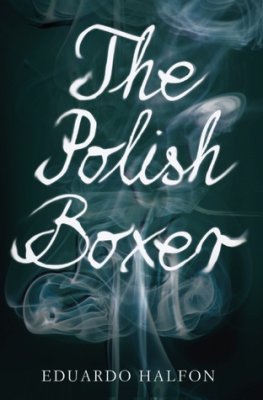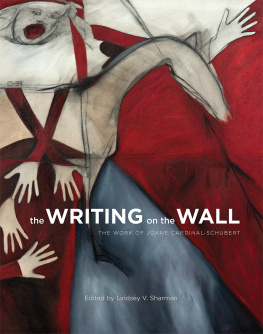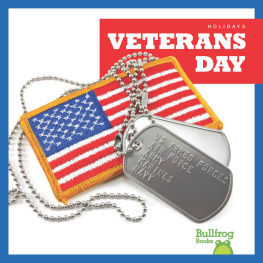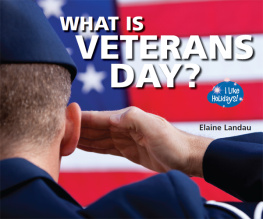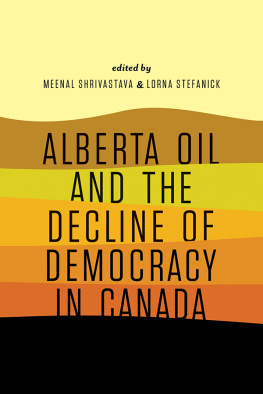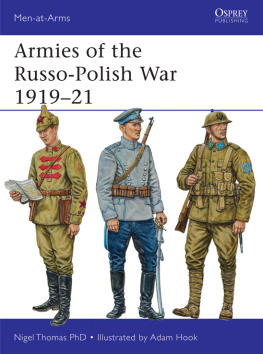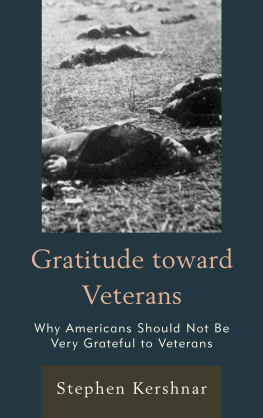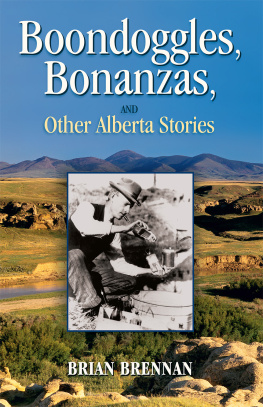
Published by
THE UNIVERSITY OF ALBERTA PRESS
Ring House 2
Edmonton, Alberta, Canada T6G 2E1
www.uap.ualberta.ca
Copyright 2019 Aldona Jaworska
LIBRARY AND ARCHIVES CANADA CATALOGUING IN PUBLICATION
Jaworska, Aldona, author
Polish war veterans in Alberta : the last four stories / Aldona Jaworska.
Includes bibliographical references and index.
Issued in print and electronic formats.
ISBN 978-1-77212-373-9 (softcover). ISBN 978-1-77212-430-9 (EPUB). ISBN 978-1-77212-431-6 (Kindle). ISBN 978-1-77212-432-3 (PDF)
1. Polish peopleAlbertaHistory20th century. 2. VeteransAlberta History20th century. 3. Polish peopleAlbertaSocial conditions20th century. 4. VeteransAlbertaSocial conditions20th century. 5. Polish peopleAlberta Social life and customs20th century. 6. VeteransAlbertaSocial life and customs20th century. 7. ImmigrantsAlberta. I. Title.
| FC3700.P7J39 2018 | 971.30049185 | C2018-904108-0 |
| C2018-904109-9 |
First edition, first printing, 2019.
First electronic edition, 2019.
Digital conversion by Transforma Pvt. Ltd.
Copyediting by Joan Dixon.
Proofreading by Meaghan Craven.
Indexing by Stephen Ullstrom.
Cover design by Virginia Penny.
All rights reserved. No part of this publication may be reproduced, stored in a retrieval system, or transmitted in any form or by any means (electronic, mechanical, photocopying, recording, or otherwise) without prior written consent. Contact the University of Alberta Press for further details.
University of Alberta Press supports copyright. Copyright fuels creativity, encourages diverse voices, promotes free speech, and creates a vibrant culture. Thank you for buying an authorized edition of this book and for complying with the copyright laws by not reproducing, scanning, or distributing any part of it in any form without permission. You are supporting writers and allowing the University of Alberta Press to continue to publish books for every reader.
University of Alberta Press gratefully acknowledges the support received for its publishing program from the Government of Canada, the Canada Council for the Arts, and the Government of Alberta through the Alberta Media Fund.
Contents
Preface
who moved to the city after completing their two-year labour contracts on Alberta farms. The Canadian chapter had been formed on October 3, 1946 by II Polish Army Corps soldiers then stationed in the Falconara camp in Italy before their departure to Canada.
The exhibit featuring their stories took place on December 4, 2011, in the Polish Canadian Cultural Centre and was open to the members of the Polish Combatants Association, guests of the Polish Canadian Cultural Centre, and the public. For the first time, the stories of combatantsII Polish Army Corps veterans among themwere presented in English, allowing a wider community to learn about their experiences. All interviews with the combatants
The exhibit was inspired by an interview I conducted on October 5, 2011, with Wadysaw Niewiski, a ninety-three-year-old II Polish Army Corps combatant who fought in the 1944 Battle of Monte Cassino, during which he was wounded twice. When I learned that he came to Canada as part of the Polish Resettlement Corps to work on a farm, I asked why he had chosen to immigrate to Canada after the war.
Before the war, when I was still in Poland, I saw sacks filled with high-quality wheat flour. These bags had stamps indicating that they came from Canada, Niewiski said with nostalgia, and as if by way of explanation.
Niewiski went on to talk about the challenges of his life as a detainee in the Soviet Gulag, his experience as a soldier in the Anders Army (II Polish Army Corps), as well as his involvement in building the Polish community in Calgary. He talked in detail about a close-knit group of Polish veterans and combatants actively involved in the work of the association from the time of its inception. After hearing Niewiskis story, I decided to look for other veterans, learn about their experiences, and create an exhibit to share their stories with the larger community. Information about this project was shared on the associations website, in the Polish churchs weekly bulletin, during the Polish weekly television program in Calgary, and in a short promotional video clip on the Polish gossip website, Ploty . The Polish community responded with enthusiasm and interest. However, the challenge was that not many World War II (WWII) Polish veterans were still able to share their stories. I heard comments such as, This project should have been done decades ago. Now, almost all WWII Polish veterans have died.
However, not discouraged, I kept looking for Polish war veterans living in Calgary and willing to share their stories. I found four I came to Canada as a refugee in 1990, having left Poland in 1988. Years later, I graduated from the University of Calgary with a Bachelor of Arts in Canadian Studies and a Masters of Arts in Communication and Culture. Despite the generation gap separating me from the veterans who I met and interviewed, as well as the different, polarized political systems in which we were born, raised and educated, being born a Pole created a connection that allowed me to research and create this project. I feel indebted to the Polish ex-servicemen/veterans/combatants who shared their stories with me.
While conducting the interviews, I observed how the events of war influenced not only the lives of the WWII Polish veterans who immigrated to Canada, and their families, but also how they had long-lasting, inter- and multi-generational implications that could still be felt by the members of the Polish community in Calgary. While researching the events surrounding the mens stories, I was also able to analyze how the media of the time portrayed the veterans and the circumstances that led them to Canada, and how that reporting helped shape their identity in their new home. The urgency of this work lies in the fact that many of these veterans have passed away and few are still alive who can share their stories. I believe it is important to collect and research war veterans first-hand accounts to preserve their stories for future generations. Our experiences become part of our personal and collective heritage, and we have to explore and maintain our relationship with the past to move forward.
Acknowledgements
THIS BOOK IS DEDICATED to all the Polish combatants who served in the II Polish Army Corps and came to Alberta to work on farms as part of the 1947 Polish Resettlement Act.
My grateful thanks are extended to the interview participants for graciously sharing their life stories with me. I am truly privileged to have had the opportunity to hear the stories of individuals who participated in significant world events, such as the Battle for Monte Cassino that took place over seventy years ago, January 17, 1944May 18, 1944.
I would like to thank Professor George Melnyk for his encouragement and support, invaluable in creating this book, and my entire family in Canada and in Europe (in particular my husband Wiesaw Jaworski, and my children, Adam Jaworski, Micha Jaworski and Natalia Jaworska for their unwavering encouragement).





